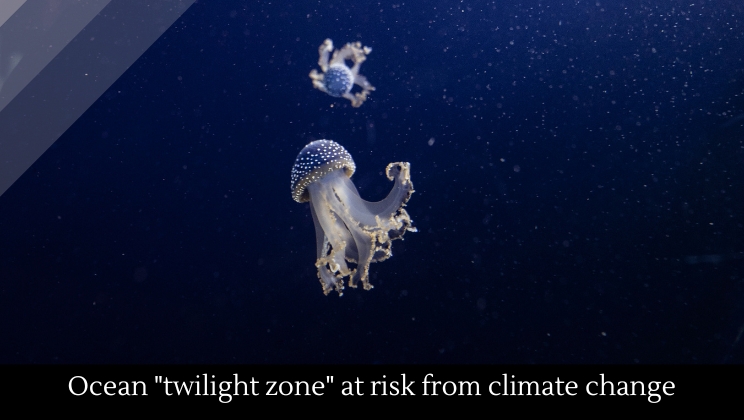Ocean “twilight zone” at risk from climate change
Posted by Thomas Bush / May 4, 2023
Climate change is threatening life in the ocean’s “twilight zone,” the deepest area that sunlight reaches.
Spain just experienced its hottest April day on record, with temperatures reaching between 10-15ºC above normal.
Rapidly-rising ocean temps are threatening a more extreme El Nino.
The signs of melting ice in the Arctic and Greenland are now “unmistakable.”
The world is heading towards the worst rice shortage in 20 years.
A huge heatwave has disrupted life across Asia. Catalonia is in the midst of its worst drought in decades. This year is likely to see a fall—for the first time—in emissions-producing electricity-generation. India, already the world’s third-largest emitter, is adding coal plants at a near record pace to keep up with climate-driven electricity demands.
The Brazilian rainforest is still being torn down at an alarming rate. The world’s ocean surface temperatures have reached an all time high.
The Pacific Fishery Management Council has voted to recommend a complete ban on commercial and recreational fishing for Chinook salmon in parts of the West Coast in 2023, due to a record-low number of the fish returning to the Sacramento River to spawn. The ban would affect over 200 miles of the California and Oregon coasts, and may last multiple years. The final decision on the ban will be made by the National Marine Fisheries Service in April.
Ice melting in Antarctica could slow deep water ocean currents for centuries, limiting the spread of nutrients to sea life.
In other climate news, the so-called Doomsday Glacier—a glacier that, were it to melt, could lead to catastrophic sea level rise, is at risk of collapse. Ice levels in the Arctic sea are at a record low.
Major corporations are failing to deliver on their promises to cut emissions. A new study suggests that up to 15 million people are threatened by climate-induced glacial melt. In a first-of-its-kind case, Shell’s board of directors is being personally sued over the company’s contributions to climate change. According to a recent study, 40% of animals and 34% of plants are at risk of extinction.
More news.
Comments are off for this post.